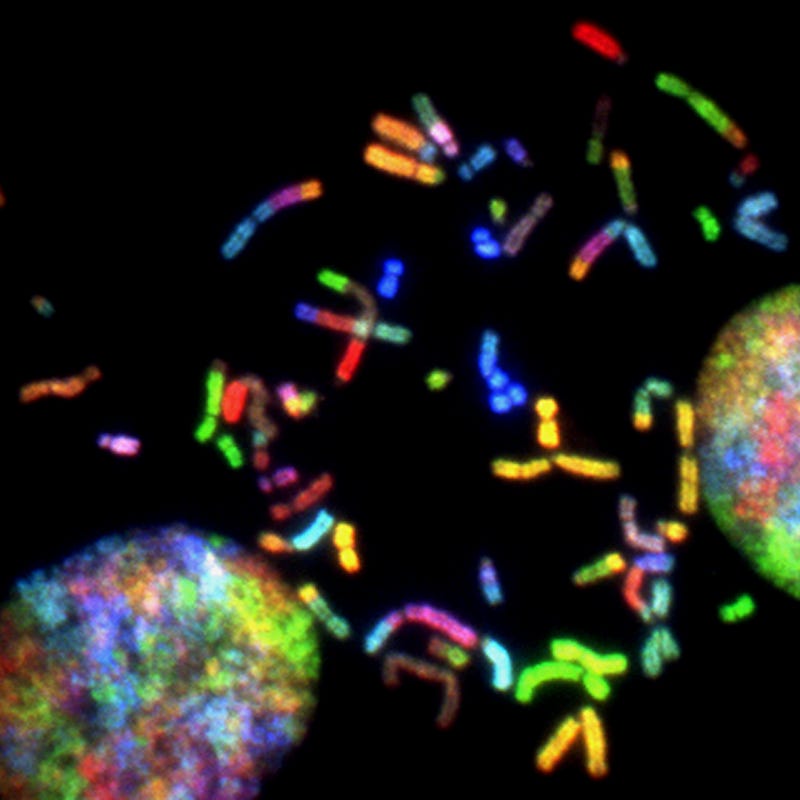The Future of Medicine: Unrealistic Hopes and Genetic Advances
Written on
Chapter 1: Debunking Medical Myths
Recent discussions from UCSF Magazine prompted its alumni and faculty to consider which anticipated medical breakthroughs might be mere fantasy by 2050. Among these were:
- A complete eradication of cancer
- The wealthy achieving eternal youth
- The emergence of a genetically engineered human species
While these concepts are undoubtedly intriguing, it seems unlikely we will witness their realization in our lifetimes. Do I sound pessimistic? Perhaps! Yet, if you hold a more optimistic view, you're not alone; our current scientific progress does spark some hope.
Now, let's delve into the nuanced reasons why these advancements may remain out of reach.

The Elusive Cure for Cancer
Understanding cancer is akin to navigating a complex maze. As a disease that arises from our own cells, it mirrors our biological intricacies.
Cancer initiates when a cell undergoes a mutation, which can be inherited or acquired. Once this altered cell emerges, it skillfully evades the immune system, multiplying unnoticed and invading neighboring tissues while creating new blood vessels to sustain itself.
By the time cancer is detected, it has often built a formidable presence. Even if we target one specific mutation, the cancer may have other variations that remain unaffected. If the primary tumor is removed, it could have already established a secondary location. In instances where chemotherapy is employed, if even 1% of the cancer survives, it can continue to thrive.
Cancer is a formidable adversary, demonstrating a relentless ability to adapt, evolve, and persist. The challenge lies in devising strategies to combat something that is perpetually changing and unique, all while avoiding collateral damage to our own cells.
The Myth of Eternal Youth
In 1951, Henrietta Lacks was admitted to a hospital for vaginal bleeding, where she was diagnosed with cervical cancer. The biopsy revealed an astonishing discovery: her cancer cells continued to proliferate indefinitely, and they remain alive to this day.
This phenomenon raises intriguing possibilities about longevity. However, before we can envision a world of centenarians, we must grapple with fundamental questions regarding the aging process itself.
Numerous theories exist, suggesting that aging may be a biological imperative. Without it, our species could become stagnant, lacking evolutionary progress. Aging may trigger certain genes to activate, allowing for the emergence of future generations.
Another perspective posits that we accumulate damage over time; cellular components deteriorate, and the normal processes of life—including respiration—introduce harmful free radicals that can damage our DNA. Additionally, as we age, our stem cells lose functionality.
Finally, telomeres—protective caps on our chromosomes—shorten with each cell division. Once they become too short, the cell ceases to divide. Research has shown that mice with longer telomeres tend to live longer and exhibit less aging.
While addressing these factors might extend life, the notion of perpetual youth remains a distant dream.
The Promise and Peril of Gene Editing
The excitement surrounding gene editing surged with the advent of CRISPR technology. This bacterial immune system enables bacteria to remember and combat viruses by integrating their DNA into their own.
CRISPR's potential extends to human cells, and it made headlines when the first genetically modified humans were born in China, designed to be resistant to HIV. However, the scientist behind this work faced severe backlash and legal consequences for his unethical approach.
By eliminating the CCR5 gene, which serves as a co-receptor for HIV, the embryos gained immunity. Interestingly, this gene deletion also seemed to enhance cognitive abilities in mice.
While the creation of genetically modified humans is groundbreaking, it also raises ethical concerns and highlights limitations. Not all genes can be edited, and the CRISPR process is not foolproof; unintended edits can occur with potentially dire consequences.
Conclusion
The development of new medications and technologies requires rigorous testing protocols that can span many years. Each stage—from cellular tests to animal trials—must undergo thorough peer review to ensure ethical standards are maintained.
Science is advancing rapidly, yet these safeguards are critical to prevent unethical practices. Genetics is an intricate field, and I hope this exploration sheds light on the complexities of our biology.
Chapter 2: Exploring Medical Innovations
The first video discusses the "8 Most Overhyped Technologies in Healthcare," shedding light on the misconceptions surrounding emerging medical advancements.
The second video explores the "Top 7 Medical Innovations In 2023," highlighting realistic advancements that show promise in the field of medicine.